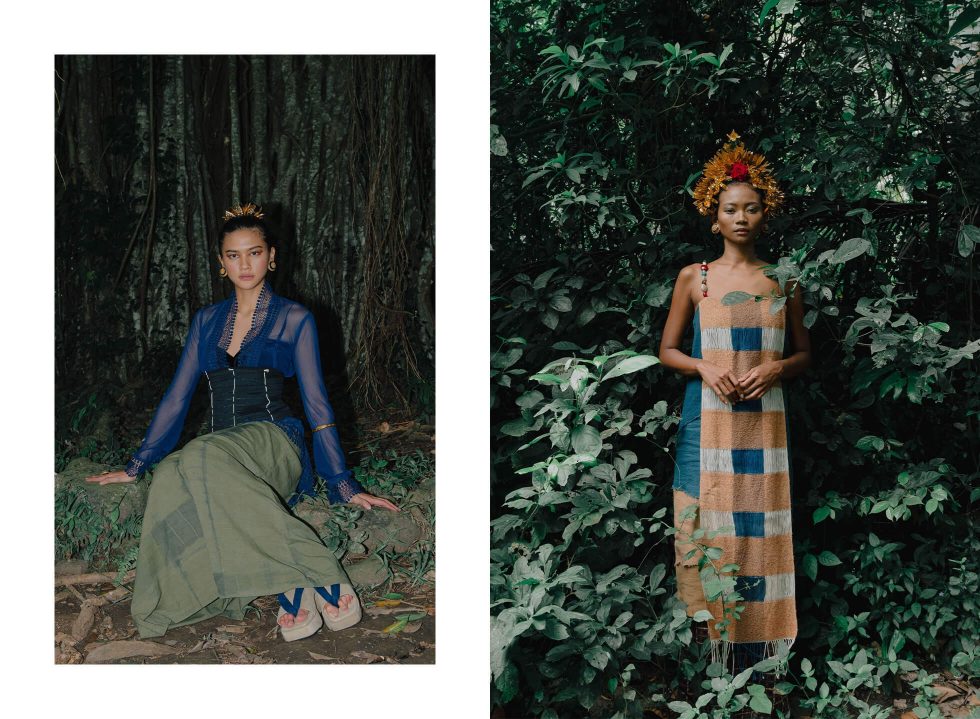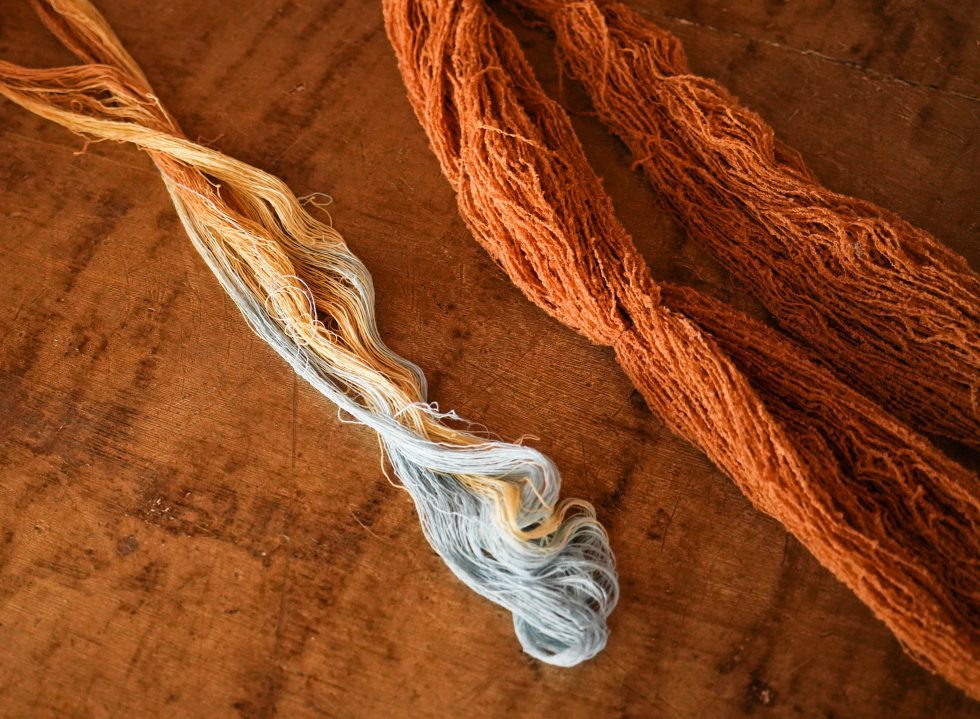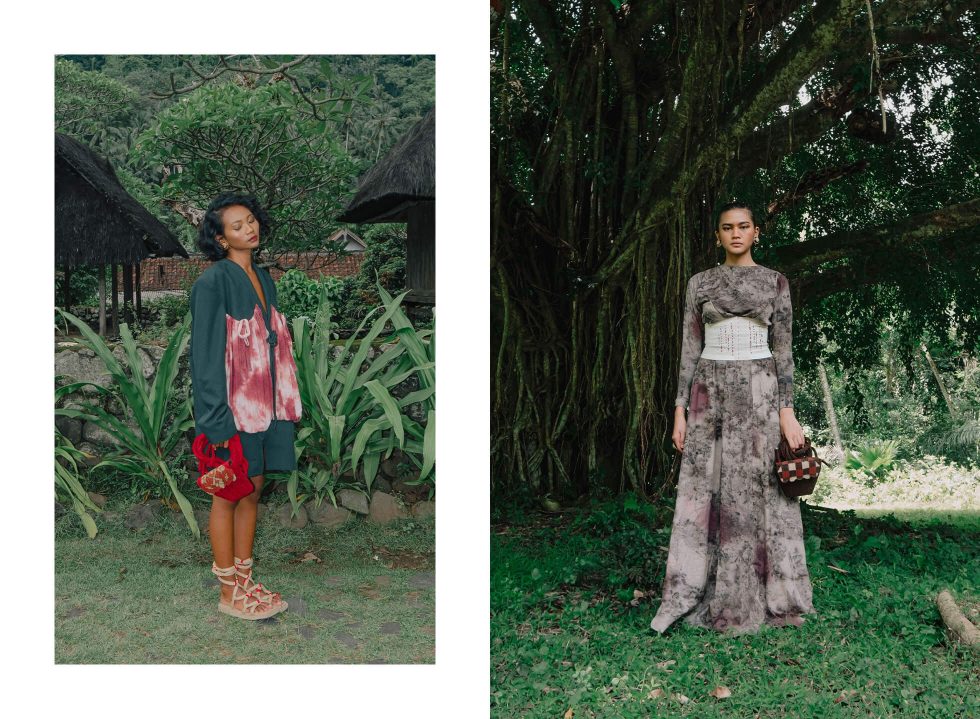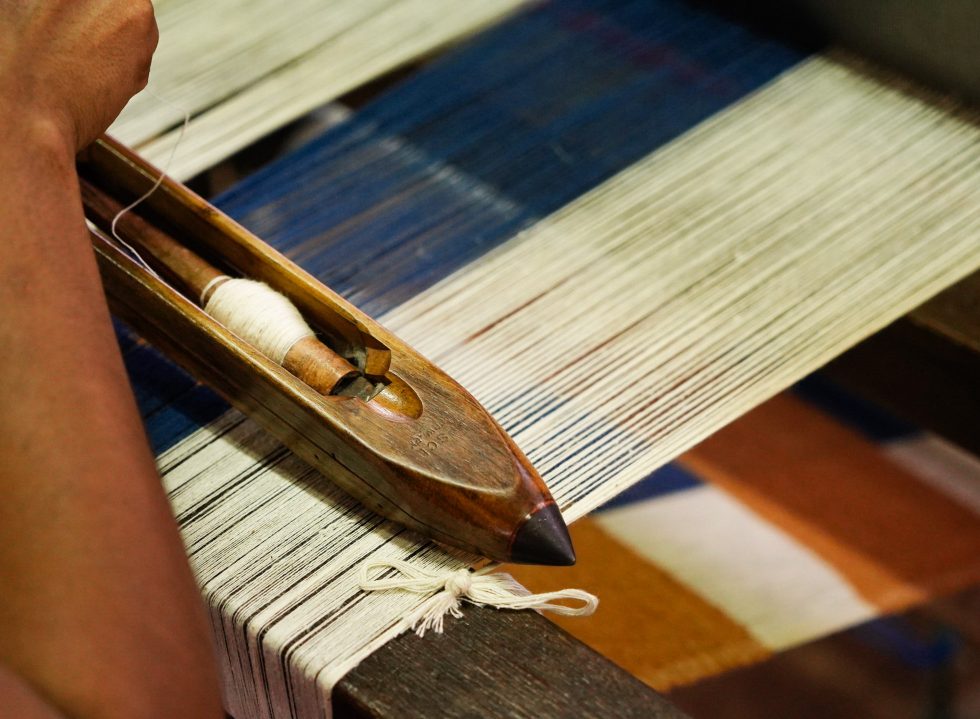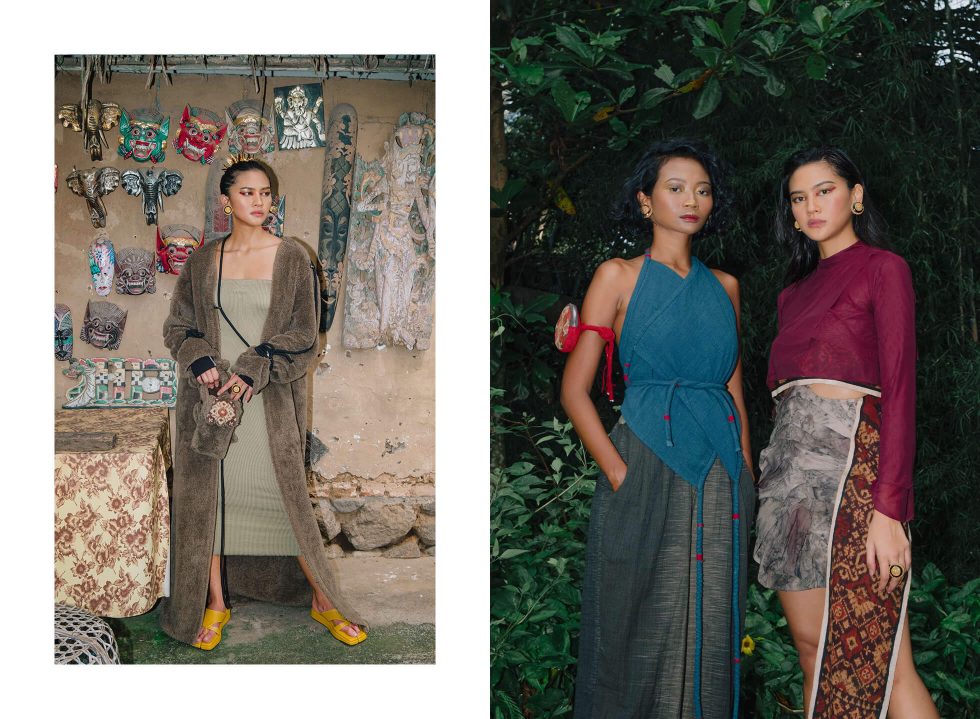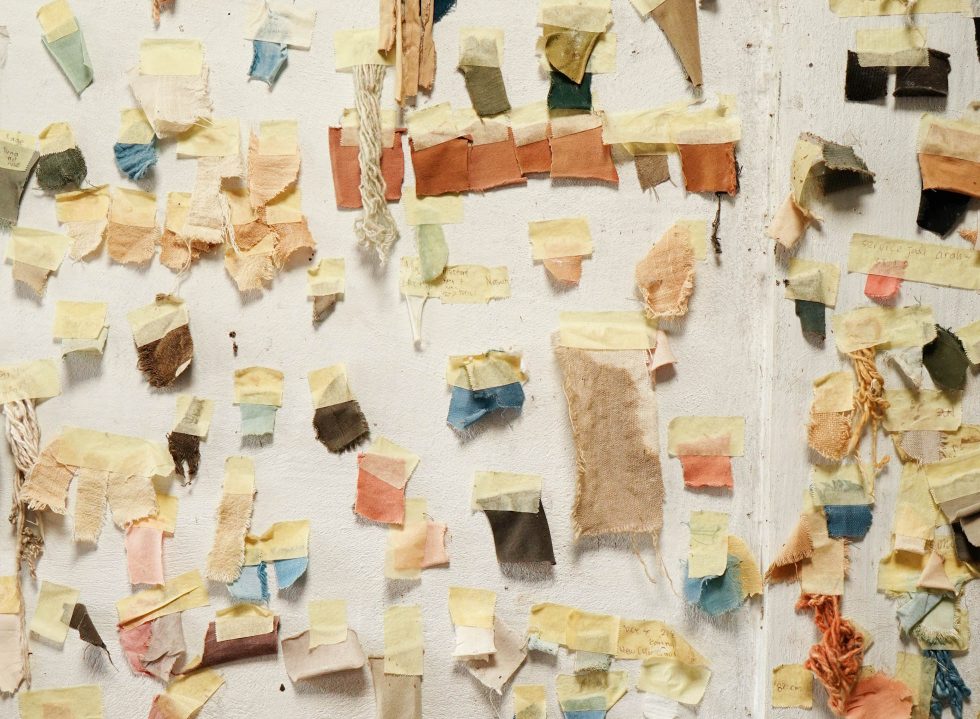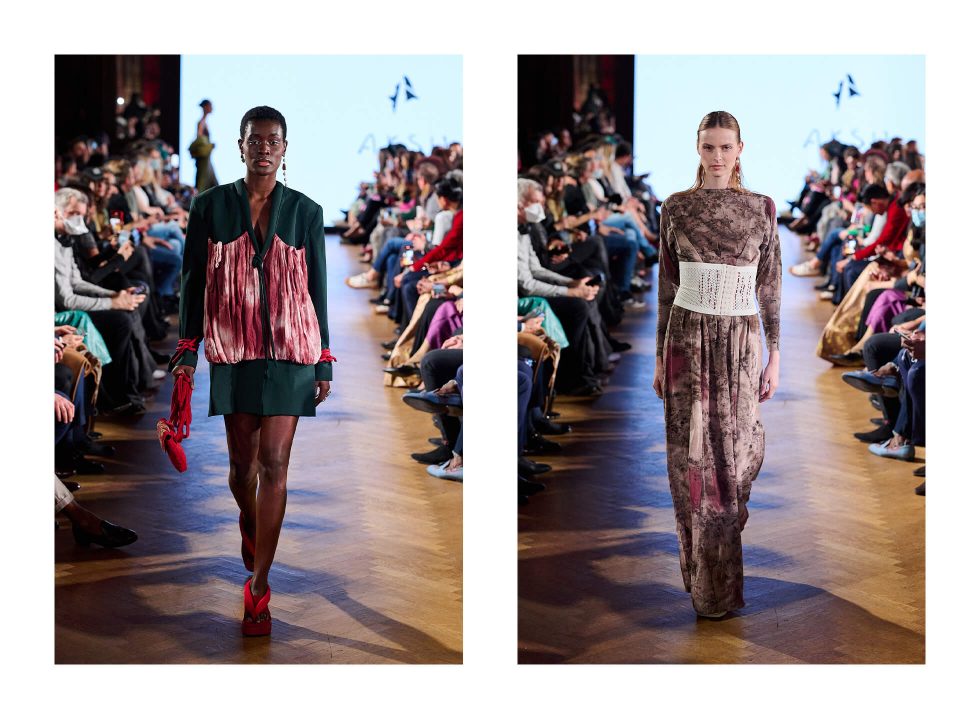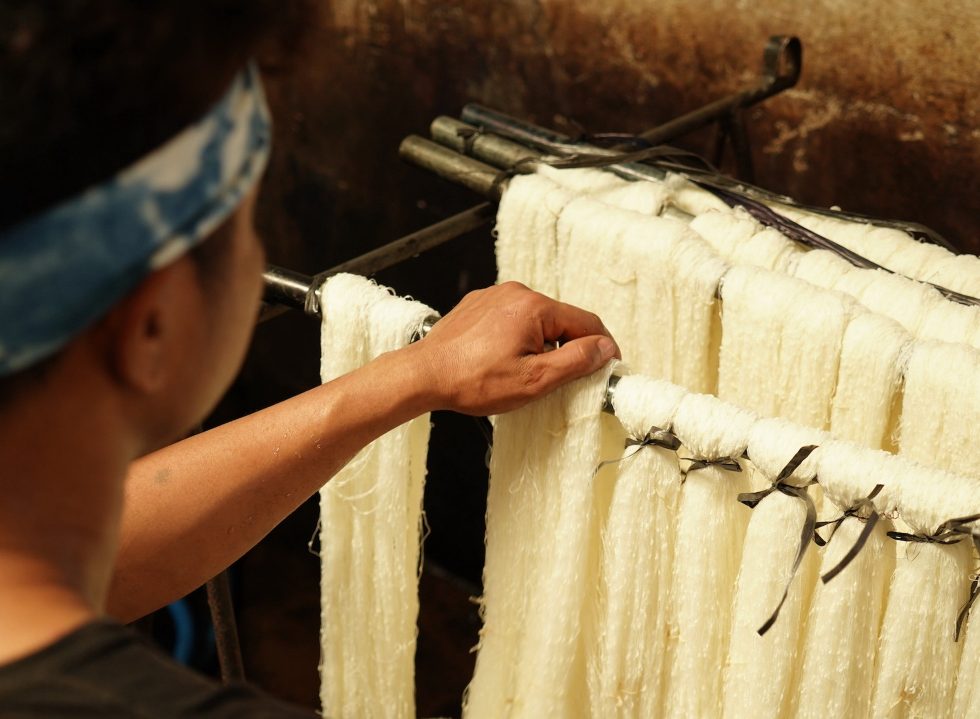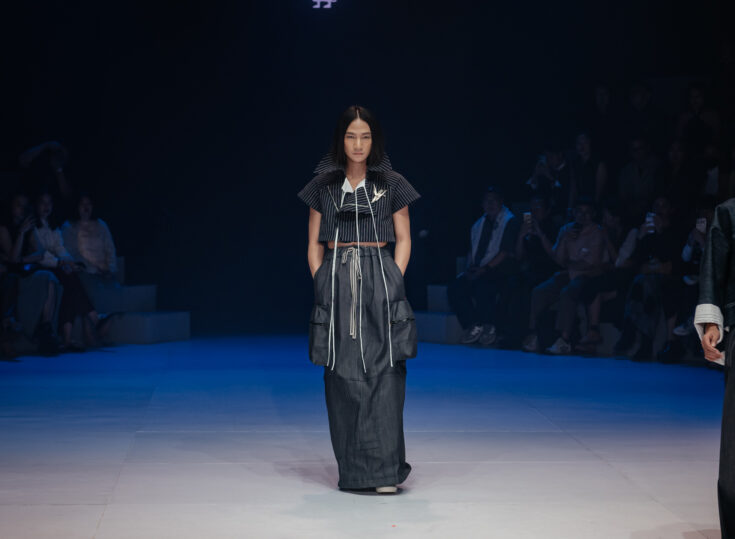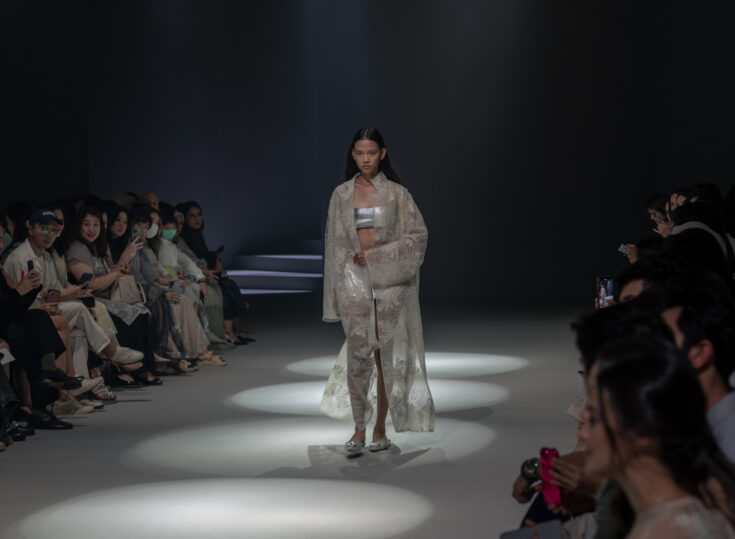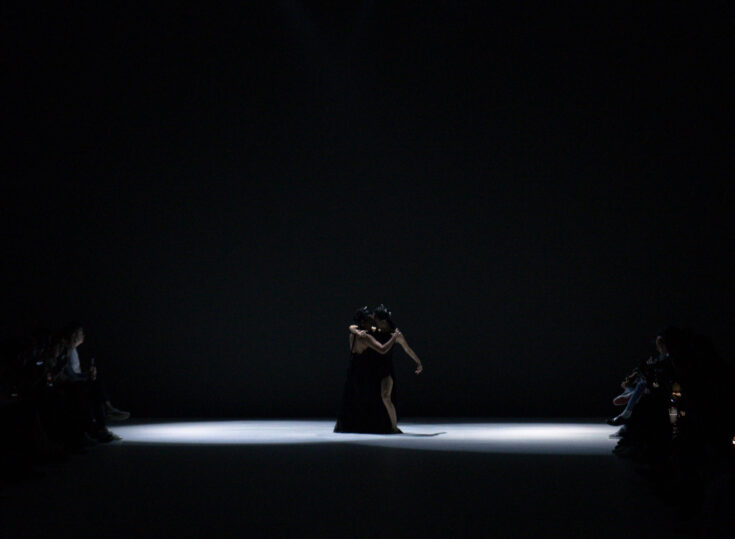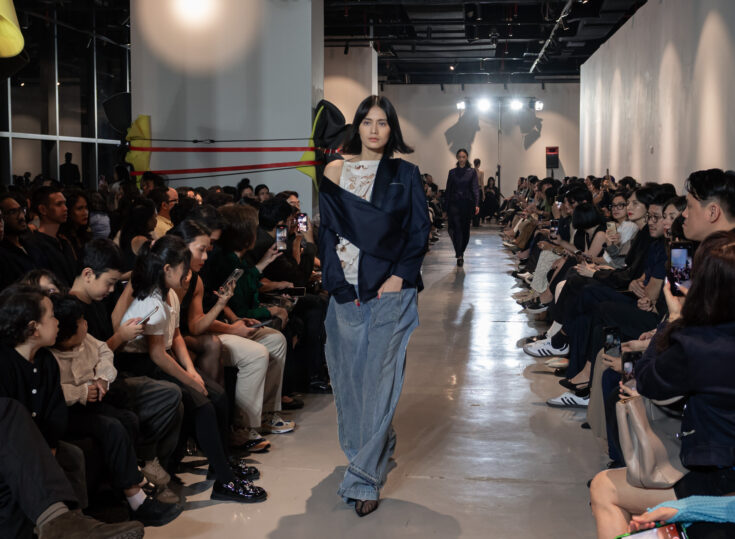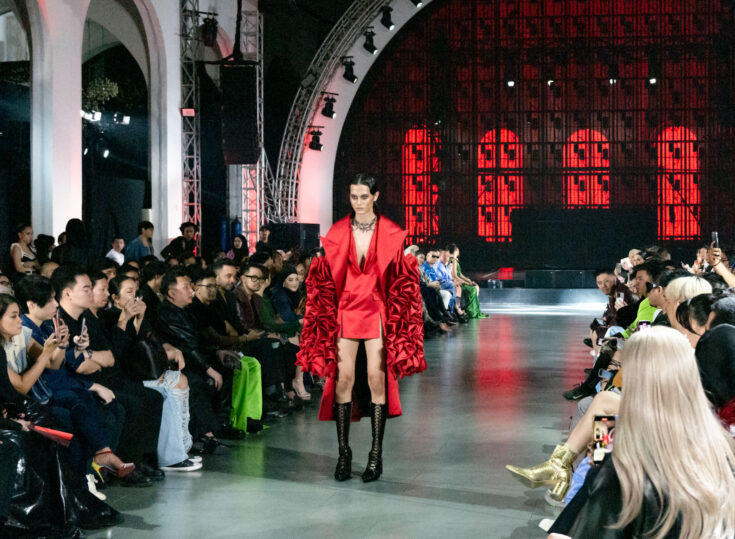“The people of Bali Aga are balanced. They still hold to ancient traditions and closely follow the traditional Balinese philosophy of ‘Rwa Bhineda’, which emphasises how two opposites meet to form an absolute balance. This means practising equality and respect, and finding harmony between duality: good and evil, joy and sorrow, spiritual and worldly,” observed Nadira Suarga, one-half of fashion brand AKSU, as she recalled one of her visits to the village of Tenganan Pegeringsingan in Karangasem, an hour and a half drive from Denpasar.
Despite the language barrier (the people of Bali Aga speak their own native dialect) and conversing mostly through body language, Nadira embraced the opportunity to spend a few days with the locals and learn their rituals and communal way of life: the way they fish, hunt in the woods and perform rituals like ‘Pandan War’, where men participate in combat using pandan leaves tied together as clubs to honour Indra, the Hindu god of war.
“We heavily rely on our visits and interacting with the locals for our research. Two collections before ‘Pateh’, we got to do the same thing in Mentawai to gather research for our collection ‘Mugejeg’. Of course, prior to that we read about them through books and the internet, but there’s nothing like being there and being able to observe and connect in person, it’s really heartwarming,” Nadira shared.
“Each of our collections closes in on one tribe or cultural community and examines their way of life. Our goal has always been to exalt these lesser-known tribes.” – Arintha Vysistha, co-founder of AKSU
The people of Bali Aga’s approach of not leaning to extremes and living in a shared equilibrium marks the jump-off point for the brand’s latest collection, ‘Pateh’, which is derived from the Balinese word for ‘same’. Together with co-founder Arintha Vysistha, the two friends developed the lineup, which they then split into two seasonal collections.
Alongside other local brands, ‘Pateh’ was flown out to Paris to be showcased there as part of the Fashion Division’s programme and got to strut down the runway at The Westin Paris Vendomê earlier in March this year. It was a momentous occasion for the brand, one they had been working towards for the past three years.
AKSU, short for ‘Akar Suara’, started off as the two friend’s final project while finishing up their Fashion Management degree at Binus Northumbria School of Design. In Nadira’s words, “Akar Suara means ‘roots of our voice’, to represent our goal of bringing awareness to cultural practices of indigenous tribes in Indonesia and echo the voices of the people and culture we want to uplift.”
“For AKSU, rather than producing collections, we try to consider the breadth of cultural storytelling. Each of our collections closes in on one tribe or cultural community and examines their way of life. Our goal has always been to exalt these lesser-known tribes and to facilitate a deeper connection and understanding of them by raising awareness of their people and craftsmanship,” Arintha chimed in.
Anchoring their ideas to traditional textiles and culture didn’t bind them to the obvious language of interpretation though. In many ways, AKSU speaks best through subtle symbolism, which manifests itself through silhouette, colour palette or finishing details. “For instance, for Pateh, we translated Bali Aga’s perspective of equilibrium through symmetrical silhouettes and minimalist cuts.”
Working together with Bali-based natural dyeing house Tarum, the fabric boasts hand-woven and hand-dyed techniques that are manipulated further into twists, knots, strings, and accentuated with hooks to illustrate the Balinese way of harmony and connection.
Colours swing from earthy tones of brown and beige to a burst of maroon and yellow: a blazer dress with red tie-dye and gathered panels; a fur-like coffee-coloured coat that drops to the floor, with black cords attached to hooks on the front side; a see-through blue kebaya top hugged by a black bustier top, a moss green jumpsuit with a puffed yellow shawl-like accessory that falls at the elbows.
Aside from the collaboration with Tarum, this collection also features other cross-collaborations, including the coloured chunky sandals with MTW and jewellery with Atelier Pedra. The village of Tenganan is also famous for its Geringsing textiles, made using a weaving technique called double ikat, which the brand made sure to reinterpret into small pouches tied to the upper arm, and backpacks in collaboration with Tenun Nan Elok.
At the moment, their premium biannual collections are only available through pre-order, but the brand produces ready-stock capsule collections as well as custom-made pieces, covering bridal wear to more casual jackets and aprons. Nadira shared how the two “really enjoy working on custom pieces because we get to work closely with our clients, from fabric selection to design development. For AKSU Custom, we try to stick to deadstock fabrics or work towards an upcycling approach.”
Their means of storytelling don’t stop at their clothes. With each collection, AKSU reframes their research and explorations into other mediums as a means of connection and to “showcase the process behind their clothes.” This takes the form of fashion films, showcases, pop-ups, and even curated social media posts, where the clothes and textiles are breathed new life and presented in such a way that point back to their main goal.
“Once we’ve designed and produced the collection, the next challenge is how to package the stories and curate it in a way that people can also be excited about. With what we want to do, the work doesn’t stop once the collection is out. It’s a continuous effort to share and cover stories and issues of the tribes we are connecting with,” Arintha weighed in.
Both the co-founders agree that it’s their hope “for AKSU to one day be less a fashion brand and more a platform to showcase Indonesian culture and help these communities thrive.”
